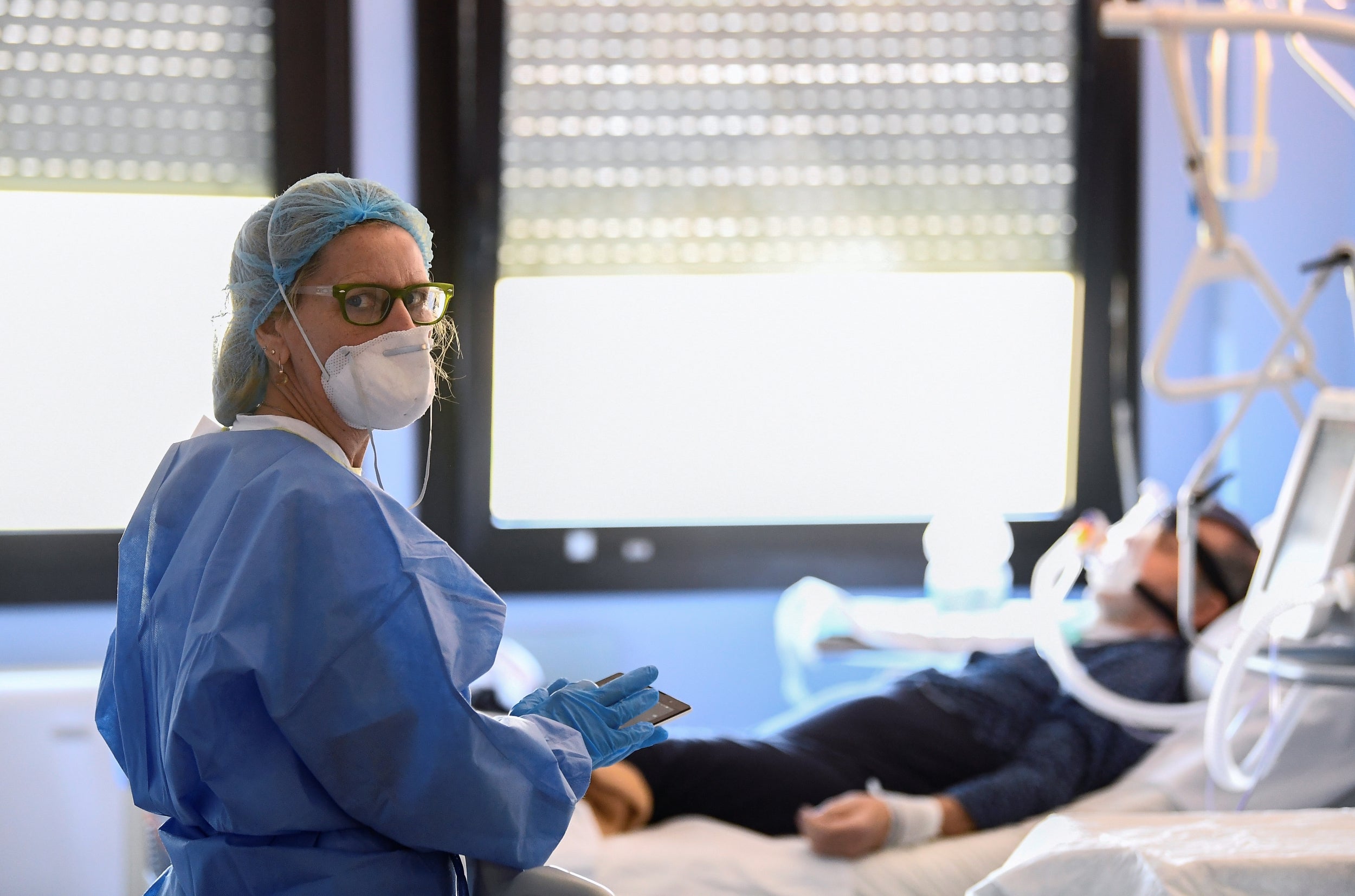Coronavirus: Scientists test two drugs as more deaths confirmed
There are currently no vaccines or treatments for the highly-contagious Covid-19 respiratory illness meaning patients can only receive supportive care
Your support helps us to tell the story
From reproductive rights to climate change to Big Tech, The Independent is on the ground when the story is developing. Whether it's investigating the financials of Elon Musk's pro-Trump PAC or producing our latest documentary, 'The A Word', which shines a light on the American women fighting for reproductive rights, we know how important it is to parse out the facts from the messaging.
At such a critical moment in US history, we need reporters on the ground. Your donation allows us to keep sending journalists to speak to both sides of the story.
The Independent is trusted by Americans across the entire political spectrum. And unlike many other quality news outlets, we choose not to lock Americans out of our reporting and analysis with paywalls. We believe quality journalism should be available to everyone, paid for by those who can afford it.
Your support makes all the difference.US researchers, following the lead of scientists in other countries, have launched studies to see whether widely-available, low-cost generic drugs can be used to help treat the illness caused by the new coronavirus.
There are currently no vaccines or treatments for the highly-contagious Covid-19 respiratory illness, so patients can only receive supportive care for now.
But a 1,500-person trial, led by the University of Minnesota, began this week to see whether malaria treatment hydroxychloroquine can prevent or reduce the severity of Covid-19. Two other trials are studying the blood pressure drug losartan as a possible treatment for the disease.
The malaria drug, also being tested in China, Australia and France, was touted earlier this week by Tesla Chief Executive Elon Musk, who recovered from malaria in 2000 after taking the medication.
Besides having a direct antiviral effect, hydroxychloroquine suppresses the production and release of proteins involved in the inflammatory complications of several viral diseases.
“We are trying to leverage the science to see if we can do something in addition to minimising contacts,” said Dr Jakub Tolar, dean of the University of Minnesota Medical School and vice president for clinical affairs. “Results are likely in weeks, not months.”
Most people infected with the new coronavirus develop only mild flu-like symptoms, but around 20 per cent can have more severe disease that can lead to pneumonia requiring hospitalisation.
The fast-spreading virus, which emerged in China in December and is now in more than 150 countries, has infected more than 214,000 and killed over 8,700 people worldwide, including at least 145 in the United States. Experts say it could take a year or more to have a preventive vaccine ready, so effective treatments are desperately needed.
A French team on Tuesday said initial results from a 24-patient trial of hydroxychloroquine showed that 25 per cent of patients given the drug still carried the coronavirus after six days, compared with 90 per cent of patients given a placebo.
Tolar said he bought 1,500 doses of hydroxychloroquine for a “laughable” amount of money. “We don’t need a multibillion-dollar investment. It is part of the beauty of this approach,” he said.
But he and others cautioned that people should not be using any prescription drugs without medical oversight.
“These treatments should be used only in hospitals by critical care specialists,” said Dr Russel Buhr, critical care pulmonologist at the University of California, Los Angeles.
Also this week, the University of Minnesota launched two trials testing losartan – one to measure whether the hypertension drug reduces the risk of organ failure for Covid-19 patients who have been hospitalised, and another looking at whether the drug can limit the need for hospitalisations.

Losartan is an angiotensin receptor 1 (AT1R) blocker, which researchers say could play a role in blocking an enzyme used by the virus to bind to cells.
Pharmaceutical companies are also working to develop treatments for Covid-19, including Gilead Sciences Inc’s experimental antiviral drug remdesivir, which is given to hospitalised patients via intravenous infusion over several days.
The New England Journal of Medicine earlier this month described how the drug was successfully used on the first patient infected by the novel coronavirus in the United States.
Results from a remdesivir trial in China could come early next month, while Gilead has begun two international trials of the drug that previously failed as a potential Ebola treatment. And the National Institutes of Health last month began testing it on patients in a US trial.
“We are focusing on high-risk patients,” said Dr Andre Kalil, infectious disease specialist at the University of Nebraska Medical Centre and the U.S. trial’s lead investigator. “Our hope is that remdesivir will show that patients will be improving faster.”
Companies including Regeneron Pharmaceuticals Inc, Eli Lilly and Co and Takeda Pharmaceutical Co have begun to develop coronavirus treatment candidates, but human testing of their drugs has not yet started.
Anti-inflammatory drugs, like Regeneron’s Kevzara and Roche Holding AG’s Actemra, have been used to treat the lung inflammation caused by Covid-19.
But in a disappointment, Chinese investigators reported this week that Kaletra, a combination HIV drug sold by AbbVie , failed to improve outcomes for seriously ill Covid-19 patients.
Reuters

Join our commenting forum
Join thought-provoking conversations, follow other Independent readers and see their replies
Comments